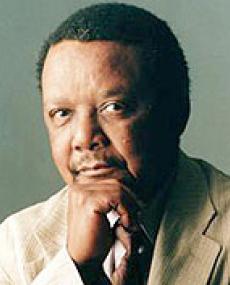
Arthur Maimane was born on 5 October 1932 in Pietersburg. He completed his matric at St Peter's College in Rosettenville, Johannesburg, which was also known as the Black Eton of South Africa. Oliver Tambo taught Maimane Maths before becoming a lawyer and president of the African National Congress (ANC). Archbishop Desmond Tutu and Father Trevor Huddleston also taught at St Peter's College. After completing matric, Maimane, was made to choose between journalism and studying medicine at Fort Hare University in the Eastern Cape.
Maimane chose the former and joined Drum magazine in the early 1950's. He was mentored by Henry Nxumalo who later became known as Mr Drum. His writings were heavily spiced with American colloquialism, but exuberantly creative for all that. His editor Anthony Sampson described him as the “complete Hollywood journalist”. He was always with a cigarette dangling from the corner of his mouth and a cynical look in his eyes. Some people found him a little pretentious. “He didn't want to speak English like a Black man, he wanted to give impression he had a cultured accent” said one contemporary. He was secretive. He kept a certain distance between himself and his colleagues. Although he drank at shebeens and went to parties he was always a close book to them. He had an arrogance which some found slightly alienating, and others respected.
Maimane rescued drum photographer Bob Gosani when was roughed up by a couple of White policemen who wanted him to show them a receipt for his camera. He asked policemen if they had the receipts for the guns they were carrying.
His arrogance eventually got him into trouble. Under the byline of Arthur Mogale he wrote a long running series about a detective called “the Chief”, in the style of American crime writers like Raymond Chandler. Maimane said it was good to write about gangsters stories he picked up in shebeens without getting himself knocked off. However a gangster-turned-poet Don Mattera, disagreed with Maimane. Gangsters were not happy about what “Mogale” wrote about them. “Maimane was very scared and very afraid”, Mattera said in Mike Nicol's book about Drum, "A Good-Looking Corpse. The gangsters were pissed off with him” and there was a word out that we should wipe this guy off”.
Maimane also worked for the Drum sister daily Golden City Post as the news editor. He didn't stay long in the country to practice his journalism career. In 1958 Maimane went into exile to Ghana to fulfil his ambitions away from the horrors of apartheid. He also feared for his life after the death of his friend Nxumalo. Nxumalo was killed in 1957. While in Ghana, Maimane worked for Drum's new West African edition and radio Ghana. But local politics in Ghana forced him to move to London and joined Reuters in 1961. He became the first full-time black staffers at Reuters. Reuters sent him to East Africa countries Tanganyika and Zanzibar (Later united to form the United Republic of Tanzania), Kenya and Uganda as foreign correspondent to report on movement towards independence.
Maimane was deported from Tanzania for turning down the ruling party's offer to edit its daily newspaper and choosing to work for the imperialist news agency for which he reported stories that were not pleasing to the government. He went back to London and offered a post with Reuters at the UN but chose instead to settle in London, with his English girlfriend, later wife, Jenny, whom he had met in Dar es Salaam, Tanzania. He joined the British Broadcasting Commission (BCC) World Services and wrote analysis of world events. He also joined BBC Television Current Affairs as a writer, producer and director of commentaries.
When he returned to South Africa, Maimane joined the Weekly Mail as its Features Editor and columnist. Between 1994 and 1997 he joined The Star newspaper as its managing editor and media consultant. His novel Victims, published in 1976, was banned in South Africa. The novel was well-received in Britain. Although the novel was banned in SA, the English Academy of South Africa awarded Arthur its Pringle Award for Creative Writing in 1978. This award-winning novel reappeared and acclaimed in South Africa in 2000 as a Hate No More. His post apartheid play called Hang On In There, Nelson was performed in 1996 at the Windybrow Theatre in Johannesburg and the State Theatre in Pretoria.
In 2001, after diagnosed with lung cancer, Maimane returned to London. He died on 28 June 2005 at the age of 72 at Charing Cross Hospital in West London. He is survived by his wife, Jenny, and four children.